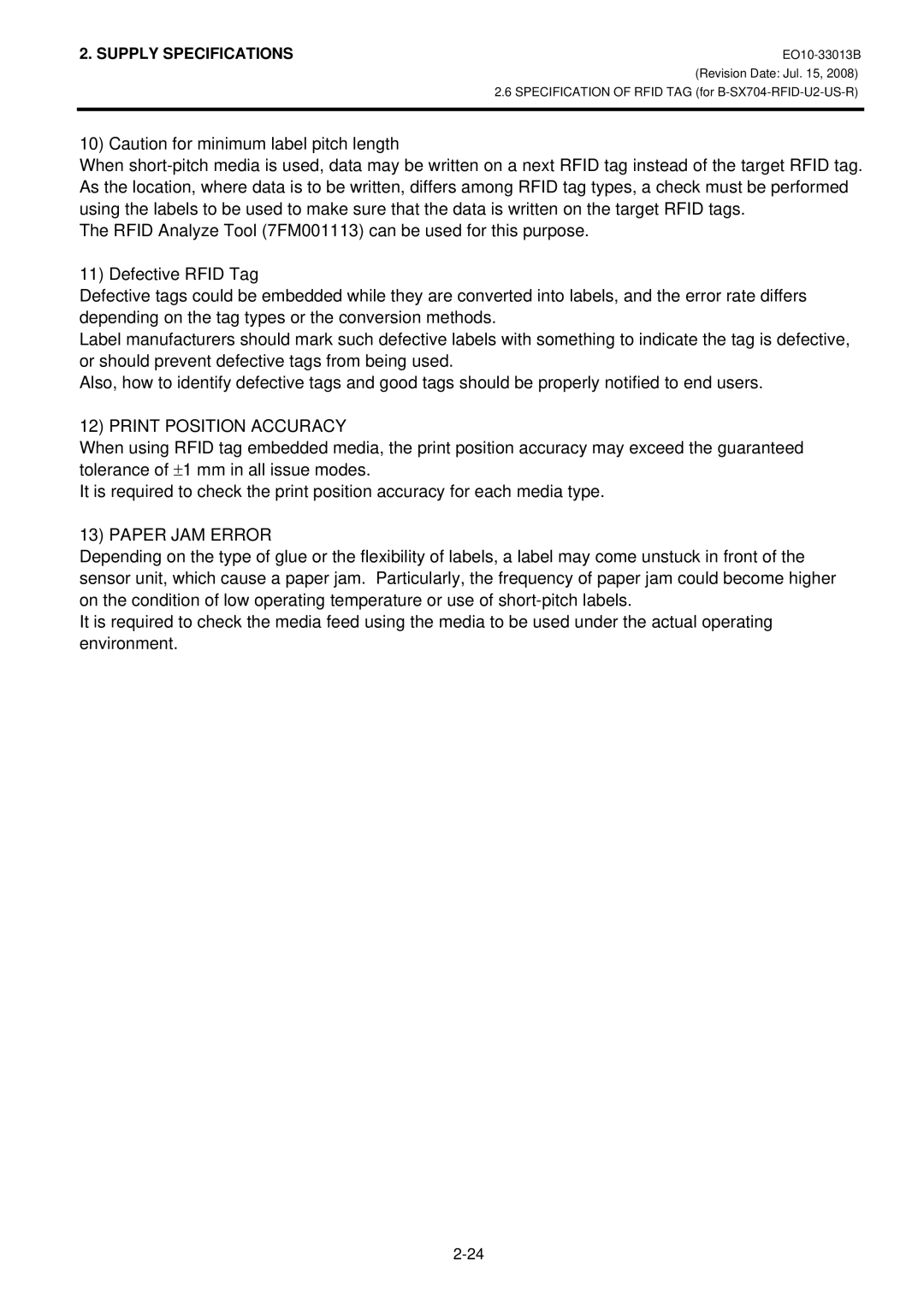2. SUPPLY SPECIFICATIONS | |
| (Revision Date: Jul. 15, 2008) |
| 2.6 SPECIFICATION OF RFID TAG (for |
|
|
10) Caution for minimum label pitch length
When
The RFID Analyze Tool (7FM001113) can be used for this purpose.
11) Defective RFID Tag
Defective tags could be embedded while they are converted into labels, and the error rate differs depending on the tag types or the conversion methods.
Label manufacturers should mark such defective labels with something to indicate the tag is defective, or should prevent defective tags from being used.
Also, how to identify defective tags and good tags should be properly notified to end users.
12) PRINT POSITION ACCURACY
When using RFID tag embedded media, the print position accuracy may exceed the guaranteed tolerance of ±1 mm in all issue modes.
It is required to check the print position accuracy for each media type.
13) PAPER JAM ERROR
Depending on the type of glue or the flexibility of labels, a label may come unstuck in front of the sensor unit, which cause a paper jam. Particularly, the frequency of paper jam could become higher on the condition of low operating temperature or use of
It is required to check the media feed using the media to be used under the actual operating environment.
